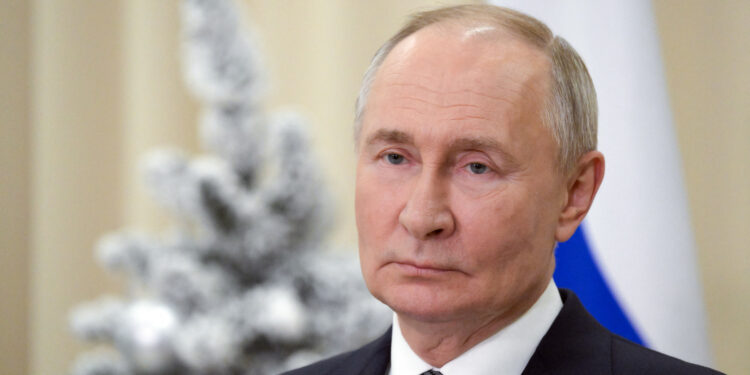Volodymyr Zelensky, president of Ukraine, speaks at the press conference during the European Council Meeting on December 19, 2024 in Brussels, Belgium.
Volodymyr Zelensky, president of Ukraine, speaks at the press conference during the European Council Meeting on December 19, 2024 in Brussels, Belgium.
Pier Marco Tacca/Getty Images
And the uncertainty on future Russian gas deters investments in alternative energy sources. Consequently, Russia has a vested interest in keeping the option to restart these pipelines at full capacity on the table.
In this context, it is crucial for the EU to develop a unified gas policy towards Russia to mitigate divisions within Europe.
One potential solution is the introduction of a European protective tariff on Russian gas.
Such a measure would reassure investors in alternative energy supplies, reduce the incentives for individual member states to become dependent on Russian energy, and generate additional resources for the EU.
Professor Andreas C. Goldthau, Director, Franz Haniel Chair for Public Policy, Willy Brandt School of Public Policy, University of Erfurt
The end of the Ukraine transit deal is not the end of Russian gas exports. Supplies through land-based pipelines may have largely ended but some liquefied natural gas (LNG) is still finding its way into Europe.
Demand in China is growing, and Putin has been eager to build up export capacity to serve that market, e.g. in the shape of the Power of Siberia pipeline system. Plus, excess capacity at home can be used for manufacturing alternative products for world markets, such as fertilizers.
Still, the end of the Ukrainian transit marks the end of a rapid and fundamental shift in Eurasian energy relations: The geography of natural gas trade dramatically changed, with Russia pivoting East for exports, and Europe looking West (that is the U.S.) for imports.
Going forward, Putin’s revenues from gas exports are structurally lower, now that it has given up its prime market, whereas Europe’s import costs are structurally higher, thanks to its increased reliance on global LNG.
And this is the new reality all sides have to deal with.
Source link : http://www.bing.com/news/apiclick.aspx?ref=FexRss&aid=&tid=6776a6d1ddde4703b32214ab57aecb27&url=https%3A%2F%2Fwww.newsweek.com%2Fukraine-halts-russias-gas-pipe-europe-how-will-putin-respond-2008580&c=16323355512141781064&mkt=de-de
Author :
Publish date : 2025-01-02 06:34:00
Copyright for syndicated content belongs to the linked Source.


